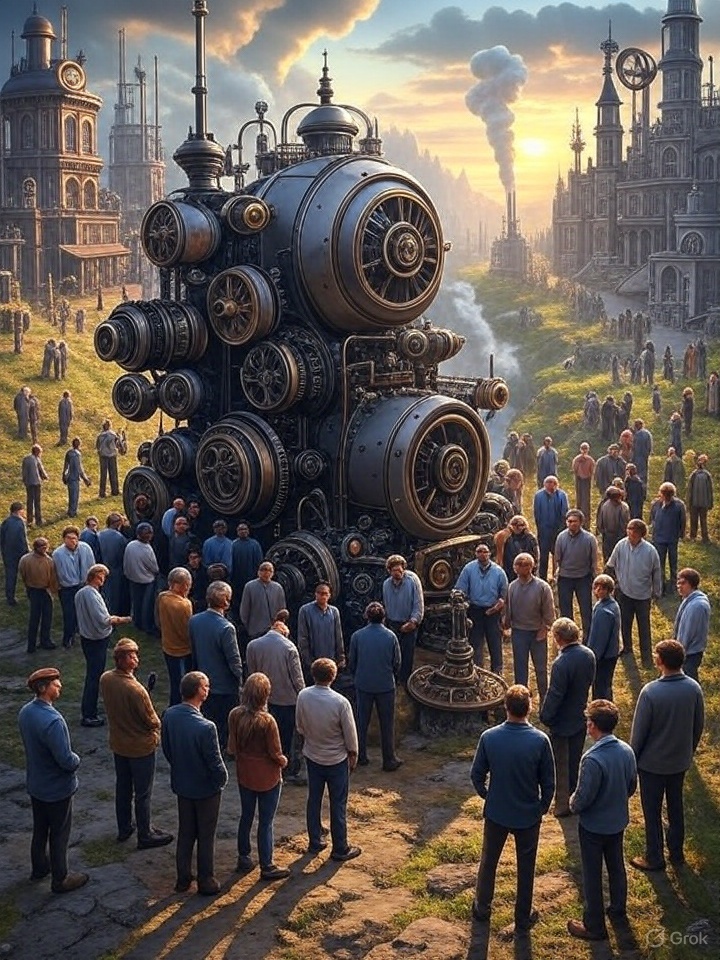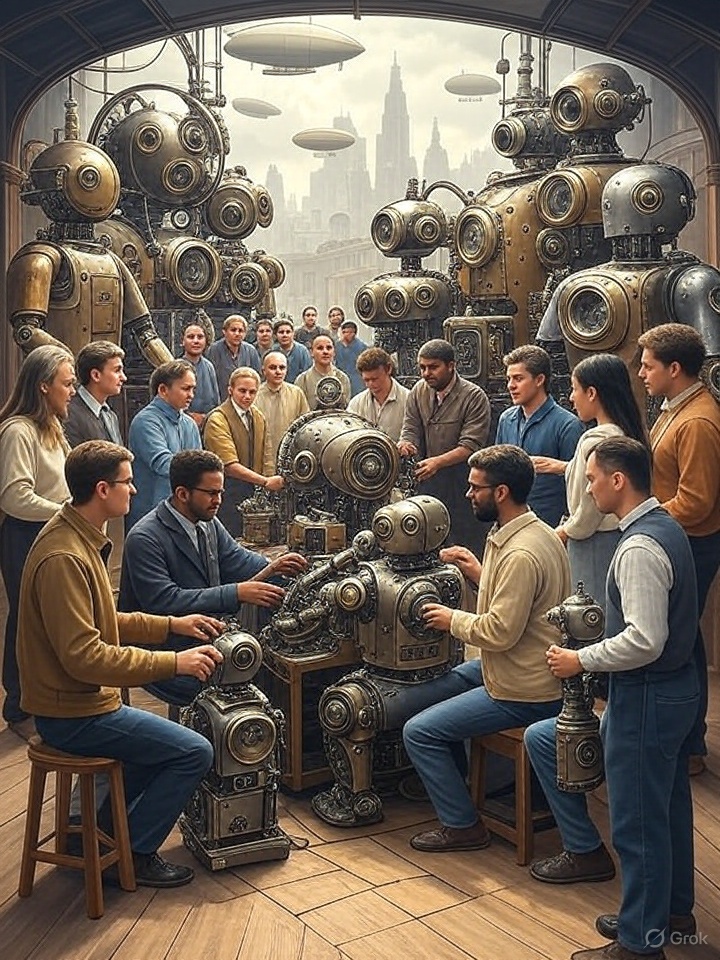The primary constraint on human civilization has never been a lack of ideas, but rather the speed at which we can coordinate to turn those ideas into reality. Historically, this limit has defined the pace of progress, but it’s undergoing a radical transformation right now, thanks to artificial intelligence (AI).
 In the animal kingdom, progress crawls at the pace of genetic mutations. It takes thousands of generations for a species to "agree" on a new survival strategy through natural selection.
In the animal kingdom, progress crawls at the pace of genetic mutations. It takes thousands of generations for a species to "agree" on a new survival strategy through natural selection.
Humans broke free from this glacial timeline with the invention of language. Speech enabled collective myths — shared stories and beliefs—that allowed tribes to coordinate faster than genes ever could.
Writing and the rise of states expanded this radius of consensus to millions, codifying laws and culture across generations.
The internet and instant messaging slashed the cost of communication nearly to zero, connecting billions in real time.
Yet, even with these leaps, humanity hit a final barrier: the biological brain’s speed of reading, speaking, and processing information.
 This cognitive bottleneck has been the ultimate ceiling on coordination, from ancient kings deliberating with advisors to today’s hyper-digital CEOs managing global teams.
This cognitive bottleneck has been the ultimate ceiling on coordination, from ancient kings deliberating with advisors to today’s hyper-digital CEOs managing global teams.
AI is now dismantling this human limitation. Machines can process and generate thousands of tokens per second—far surpassing the human brain’s capacity. They can maintain vast amounts of context, synthesizing information from countless sources simultaneously, and connect millions of autonomous agents into efficient, collaborative swarms.
For example, large language models like those developed by xAI can analyze and produce text at a rate that would take a human days or weeks to match.
This isn’t just a marginal improvement; it’s a paradigm shift. When coordination becomes cheaper and faster than the thought cycle of an individual brain, the rules of societal organization will be rewritten.
 The implications are profound. Historically, the speed of coordination dictated the pace of change—whether it was building empires, launching industrial revolutions, or scaling tech companies. With AI, that pace could accelerate exponentially.
The implications are profound. Historically, the speed of coordination dictated the pace of change—whether it was building empires, launching industrial revolutions, or scaling tech companies. With AI, that pace could accelerate exponentially.
Imagine a world where decisions that once took weeks of meetings, emails, and negotiations are made in seconds by AI-driven systems that align millions of stakeholders instantly.
Supply chains, governance, scientific research, and even creative collaboration could operate at unprecedented speeds, driving innovation and reshaping economies in ways we can barely predict.
 Also read:
Also read:
- The Illusion of Normalcy: AI’s Imminent Impact on the Job Market and Economy
- Emoji Overload? Science Says You Might Be a Narcissist or Psychopath
- Is IT Done For? Viral Chart Shows Record Low in Tech Job Vacancies on Indeed
This shift isn’t without challenges. Faster coordination could amplify existing inequalities if access to AI tools remains uneven, or it could centralize power in the hands of those who control these systems. But the potential for progress is staggering.
By removing the biological ceiling on coordination, AI could unlock a new era of human achievement — one where the speed of change matches the speed of our collective imagination. The question isn’t whether this will happen; it’s how we’ll navigate the transition. The future of civilization hinges on how we harness this newfound ability to coordinate at scale.






